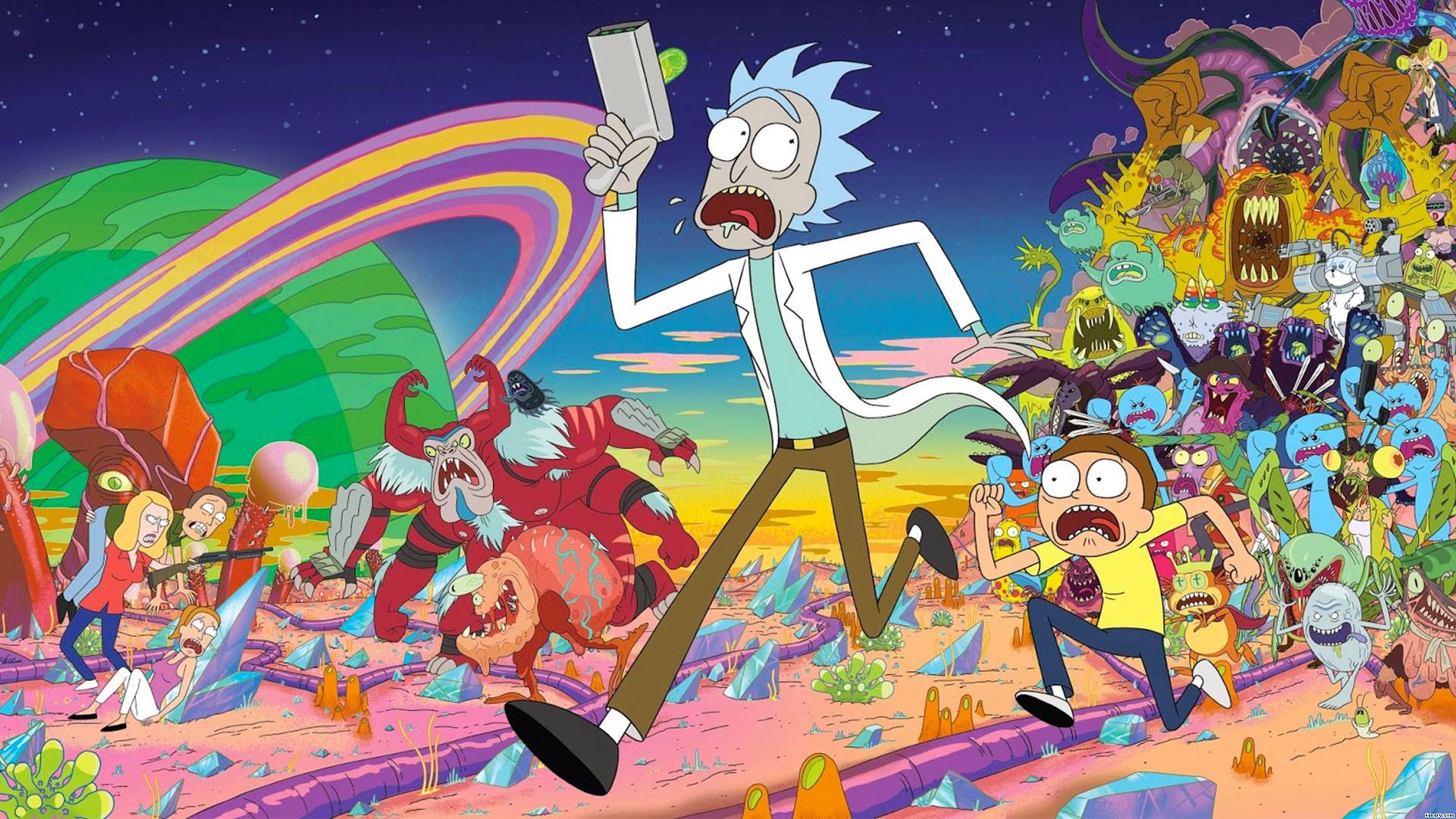Get Schwifty with multiverse theory
One of TV’s most scientifically-minded shows is the brilliant Rick and Morty, and it likes to play with that old sci-fi staple, the multiverse. Parallel universes and alternate realities have long been found in science fiction but, given both its incredible use of the multiverse and its pretence of scientific accuracy, how does the multiverse in Rick and Morty fare?
Now, the problem with multiverse theory is that there isn’t a single definition of a multiverse among its proponents. There are two key variants of the theory, each one markedly different from the other.
The original concept came from quantum mechanics, and is known as the many-worlds interpretation. It states that every event causes the universe to split off into different versions that encompass all possibilities. So, say you flip a coin – two parallel universes would be generated: one in which the coin landed heads, and in the other, tails. This idea rocks up in ‘A Rickle in Time’, in which a number of uncertainties keep on generating parallel timelines (the episode ends with a group of fourth-dimensional testicle monsters beating up Albert Einstein, inspiring him to formulate the theory of relatively as vengeance – if that doesn’t get you into science, what would?).
Say you flip a coin – two parallel universes would be generated: one in which the coin landed heads, and in the other, tails
A different concept arose from the theory of cosmological inflation – it imagines space-time like a loaf of rising bread, in which bubbles (universes) form and grow. If you have eternal inflation, that implies that this expansion lasts forever in certain regions, and that would then imply the existence of a multiverse. This idea helps explain certain astrological questions – it has been suggested, for example, that the Big Bang could be the result of two universes colliding.
Hints in Rick and Morty would suggest that it inclines towards a quantum multiverse. In ‘Rick Potion #9’, Rick unleashes a genetic epidemic that turns the world’s population into writhing blobs of mutant flesh. Instead of cleaning up the mess, he instead chooses to travel to an alternative world in which he succeeded and resolved the issue. Upon being greeted by their own mangled corpses Rick explains: “There’s an infinite number of realities, Morty, and in a few dozen of those, I got lucky and turned everything back to normal. I just had to find one of those realities in which we also happen to both die around this time.”
This idea helps explain certain astrological questions – it has been suggested, for example, that the Big Bang could be the result of two universes colliding
Is a multiverse actually infinite – is Rick’s strategy a viable one? A recent calculation by Andrei Lindei and Vitaly Vanchurin of Stanford University looks at the ways that quantum fluctuations may produce variations of a single universe, and came up with a total of 10^10^10^7 possible universes (they then whittle this down to 10^10^16 when considering the capacity of the human brain to distinguish different universes). A lot of these universes would also be barren of life, planets and stars, and could have markedly different laws of physics.
One big problem with the theory is that, based on the different models suggested, proving the existence of a multiverse is nigh-on impossible, and so numerous scientists are vocally against it. There are theoretical ways of proving the idea, like bubble collisions – the idea being that, if the edges of two universes crashed into each other in the distant past, an imprint would be left behind. However, even the proponents of this idea admit that this would be a long shot at best.
There are theoretical ways of proving the idea, like bubble collisions – the idea being that, if the edges of two universes crashed into each other in the distant past, an imprint would be left behind
The quantum understanding would generate universes that we couldn’t travel to, but would in fact already be inhabiting (it’s confusing, but you’re in both the universe where you got heads and tails). How about the inflation model? If other universes exist beyond our own, could we potentially travel to them? In Rick and Morty, the duo use a portal gun, which creates a wormhole between two universes. Such a thing is theoretically possible, but it would require an infinite amount of energy, so I wouldn’t expect to see it happening any time soon.
A final potential idea is that mathematics itself is the fundamental reality, and that our own observations of the universe are just imperfect perceptions of its true mathematical nature. If this is true, then it is consequently the case that any mathematical structure that describes a universe could exist as its own separate universe. As I explained in my Futurama piece, maths interplays quite heavily with these animated sitcoms – could it be the case that the writers of Rick and Morty have done the sums and are thusly presenting us with universes they’ve calculated are possible?

Comments